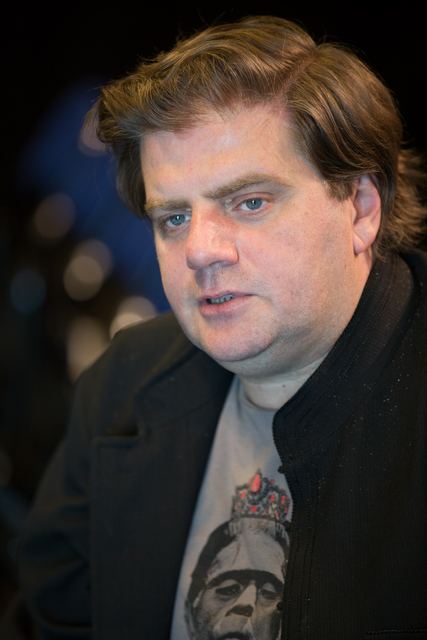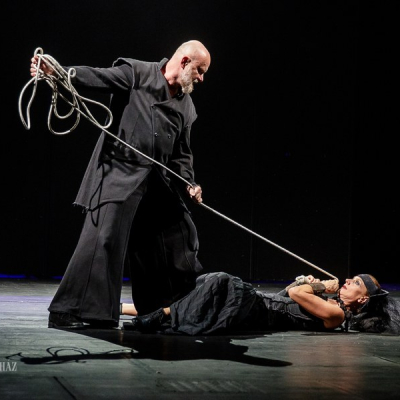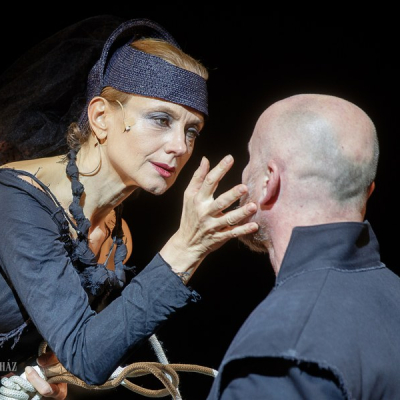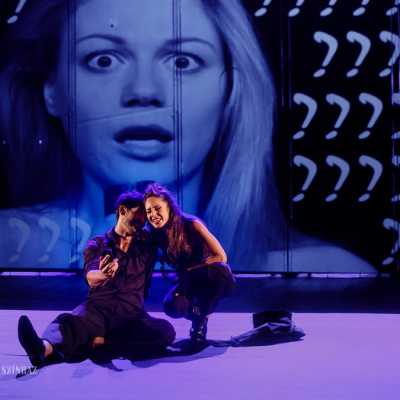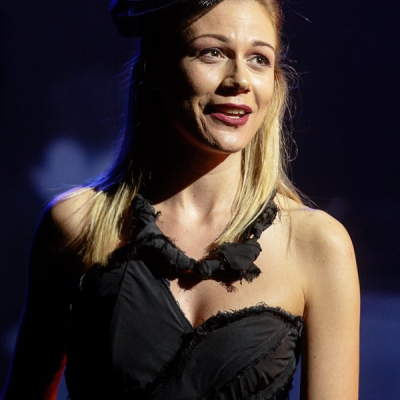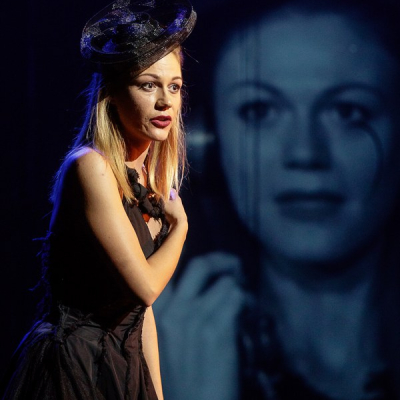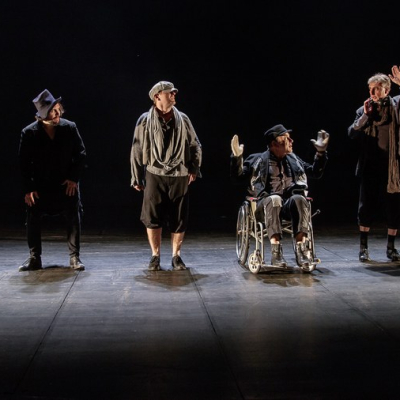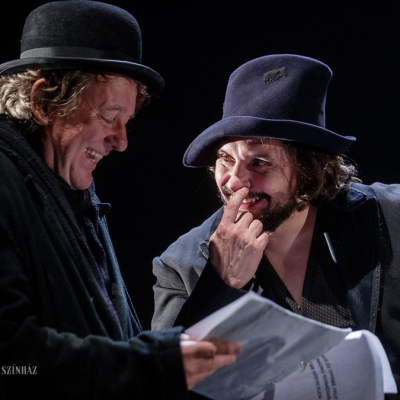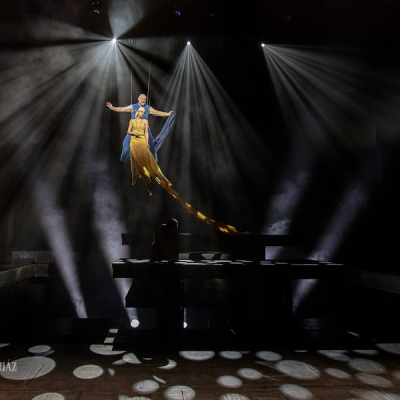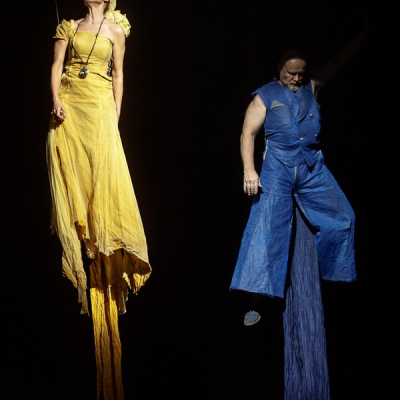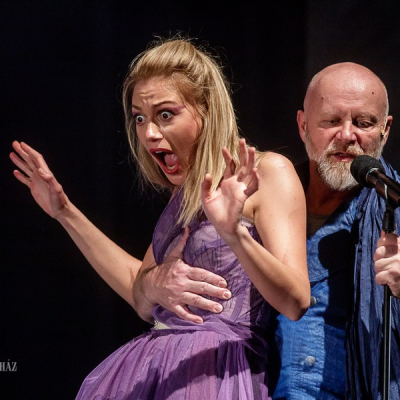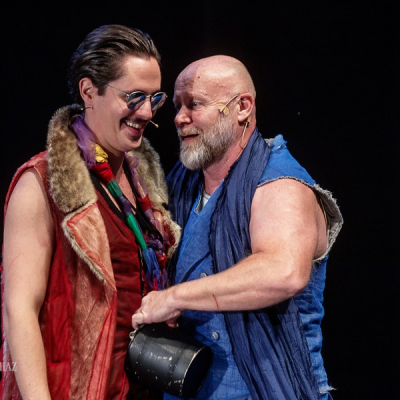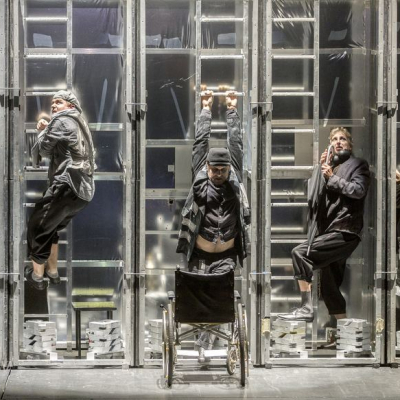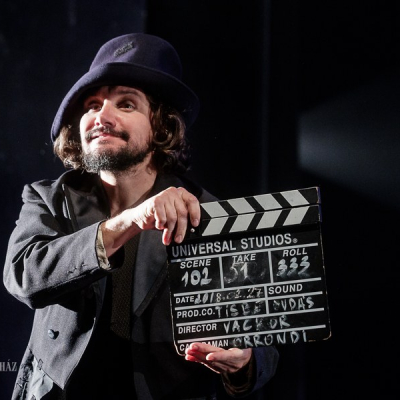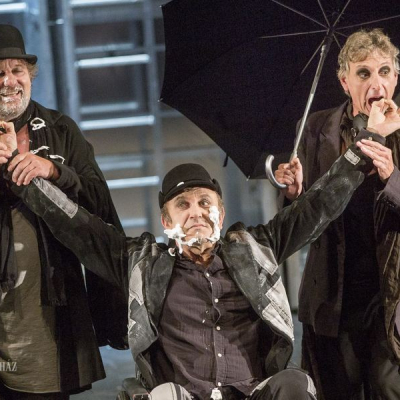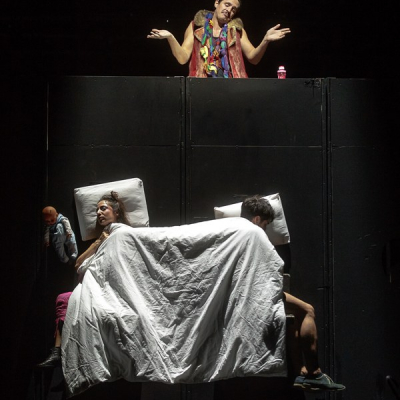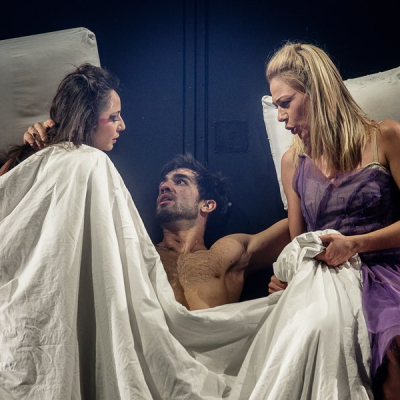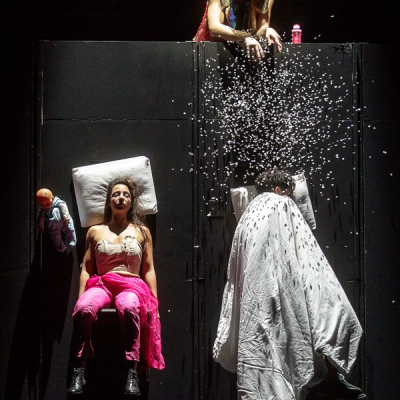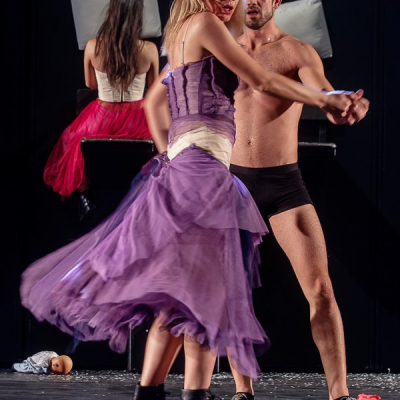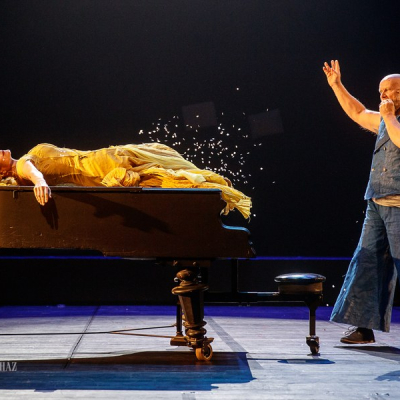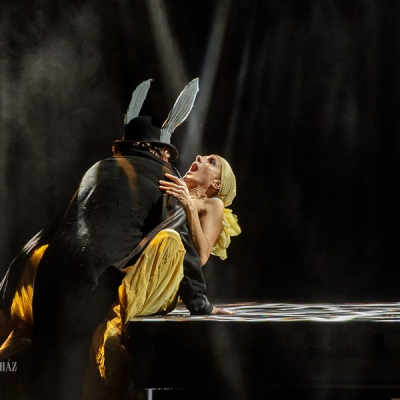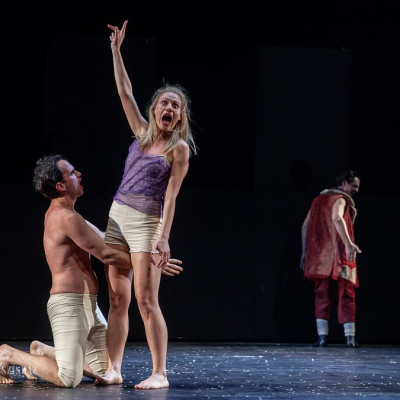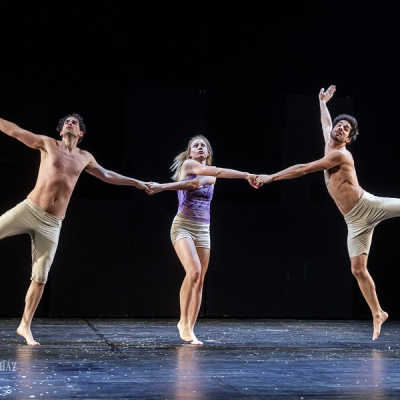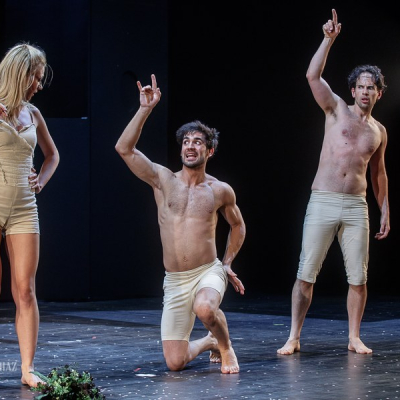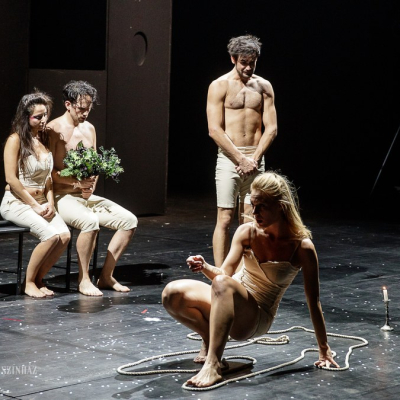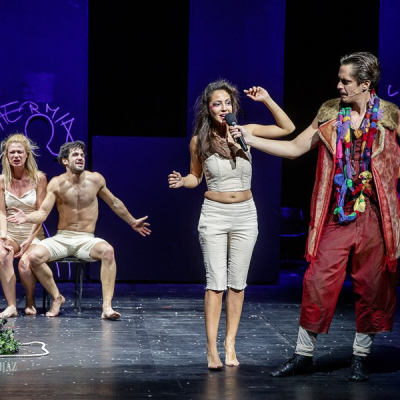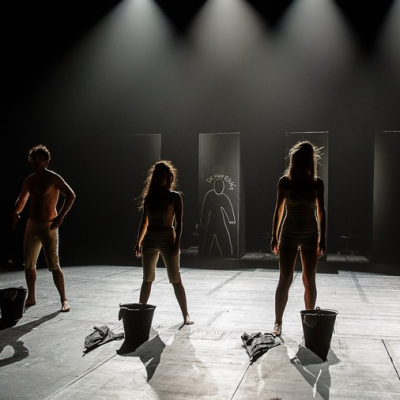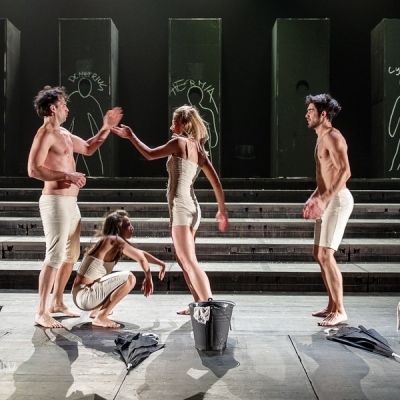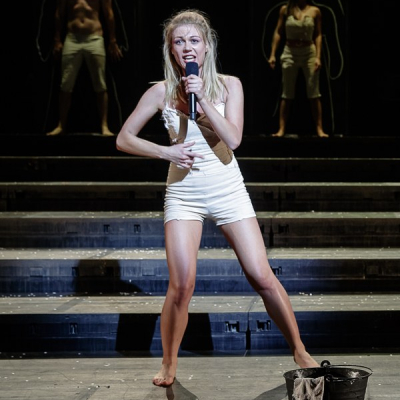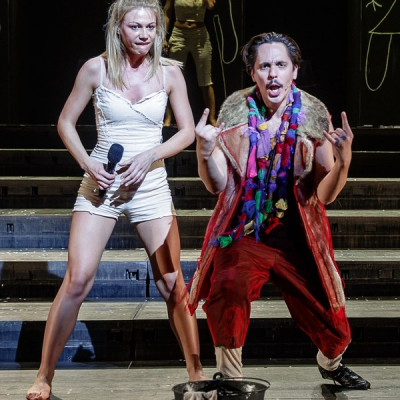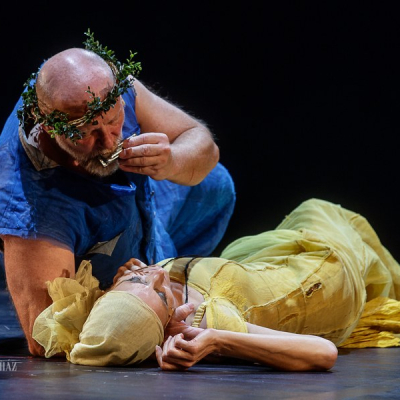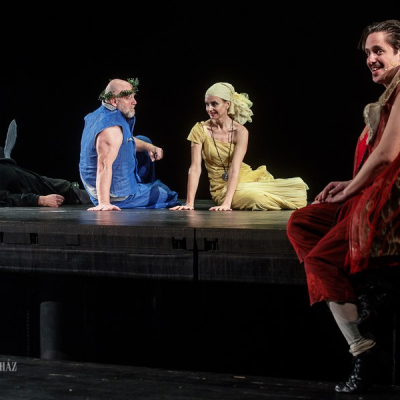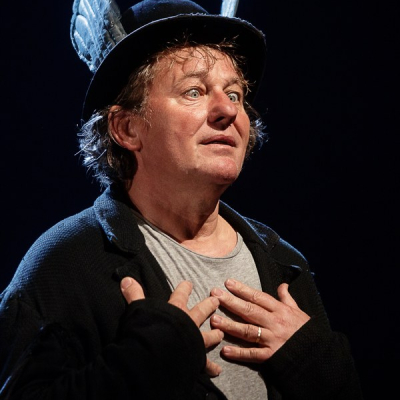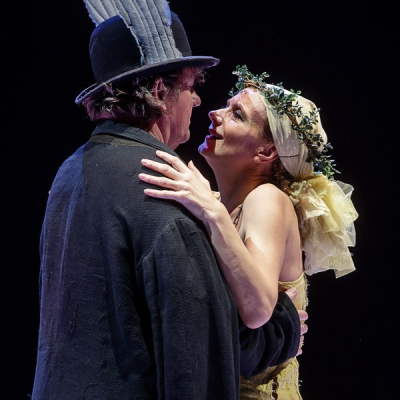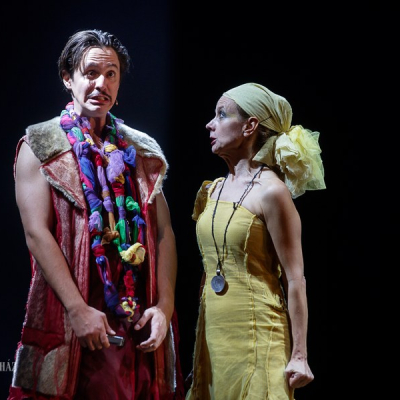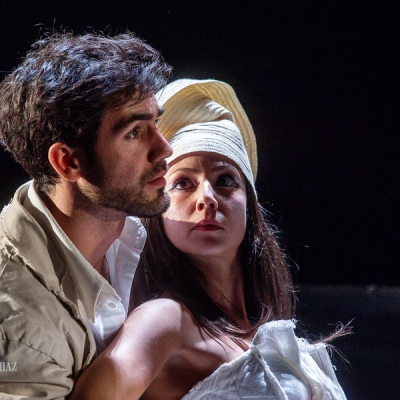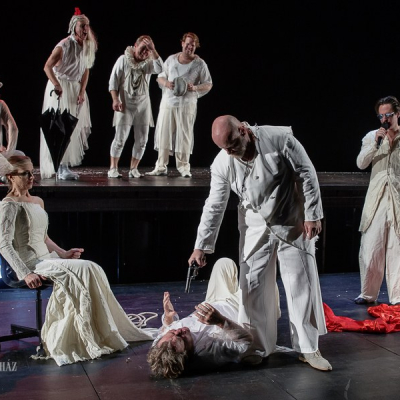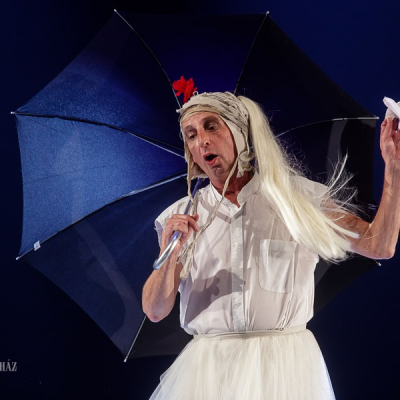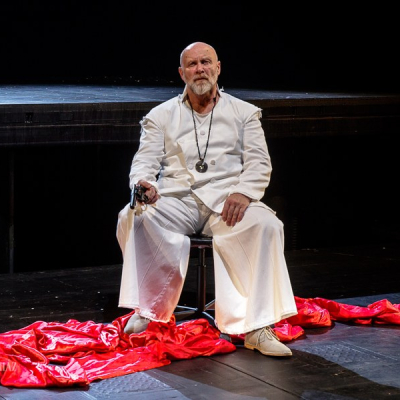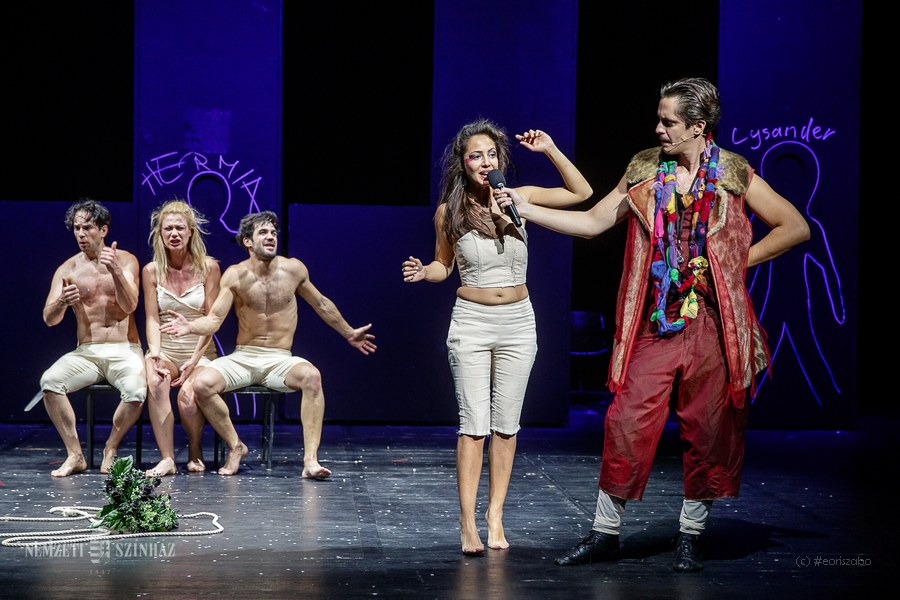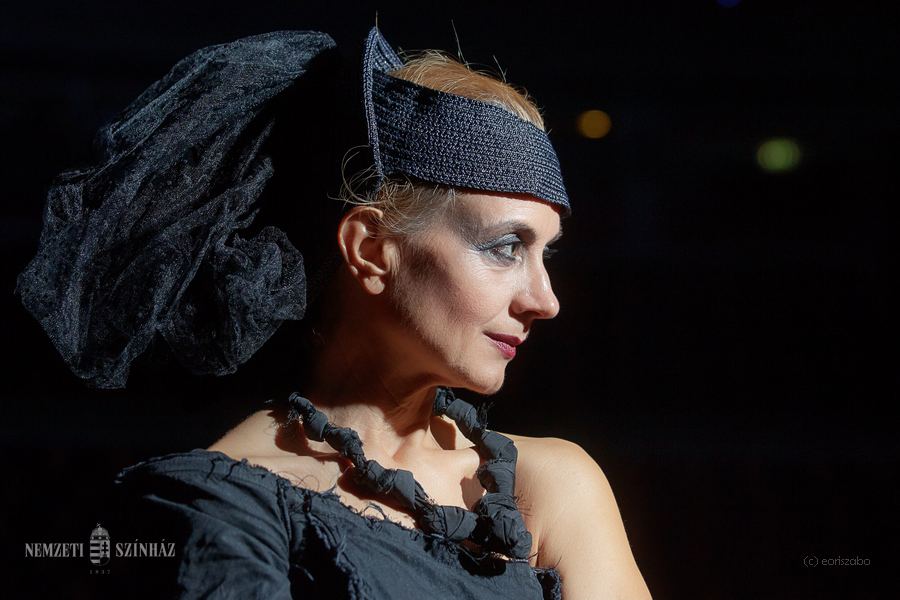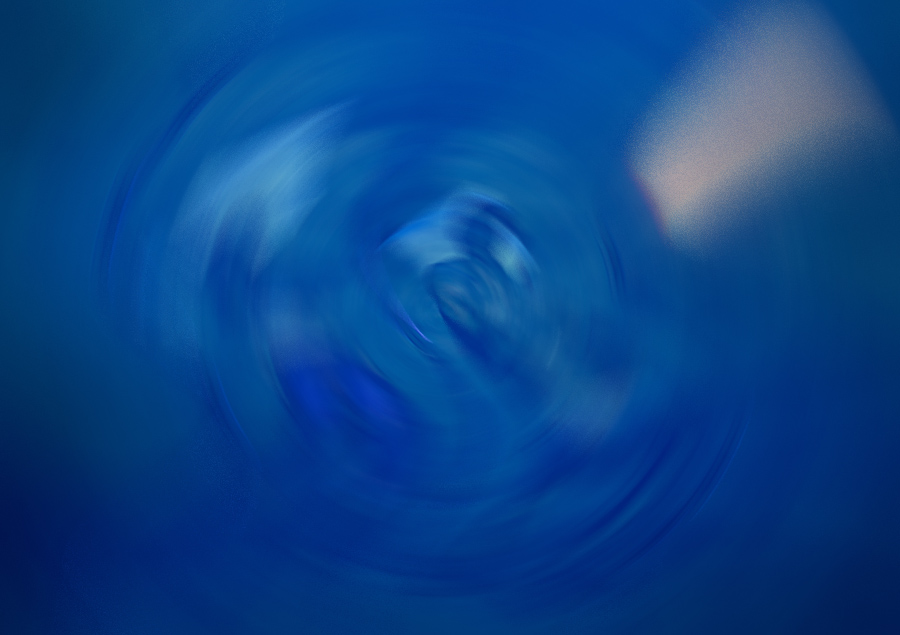A Midsummer Night’s Dream 16
Performed in Hungarian with English subtitles
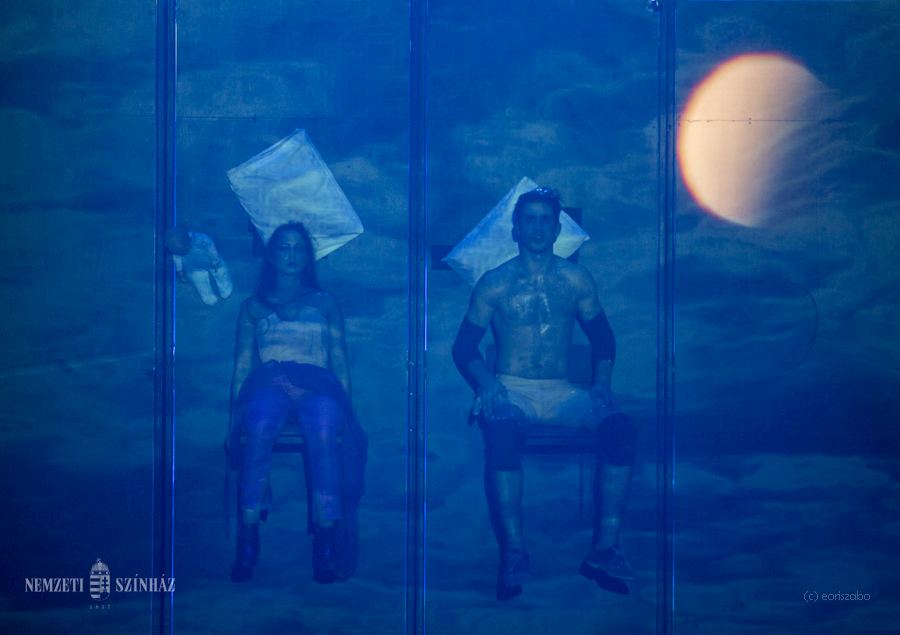
National Theatre, Budapest, Hungary
Director: David Doiashvili
Performed in Hungarian with English subtitles.
3 hours 15 minutes with 1 breaks.
Midsummer Night’s Dream, one of Shakespeare’s most popular dramas, is about the unusual relationship between dream and reality. The play is often performed as if were a light, cheerful fairytale in which comedy mingles with a bit of lewd sexuality. Humans smitten by love and jealous gods wander through a dreamlike forest, but in the end everyone find’s his or her match. According to Georgian director David Doiasvili, this interpretation only touches the surface of the text and fails to capture the deeper significance of the drama.
Blunt humor and gentle joviality play an important role in this production by the Hungarian National Theatre, but this only works when the powerful drama of ever-shifting human sentiment, desire, and disappointment, the darker side of our existence, is also there.
This production examines the strange, mysterious relationship between dream and reality. The characters wander through a complex emotional labyrinth. Everything that they thought they knew about themselves and one another is turned upside down. As is the case in real life, in the play love creates a complete confusion out of their lives. Shakespeare’s characters suddenly realize that they are unable to tell the difference between the dreams created by their desires and the reality in which they are actually living. Indeed, the intense emotions they experience in their dreams seem more real than the reality to which they have become accustomed and which they live as if it were merely a role.
In David Doiashvili’s interpretation, the conflicts and encounters between the characters of Midsummer Night’s Dream are trials, and once the characters have gone through these trials, they can no longer live as they lived before. A captivating kind of initiation takes place before our very eyes, somewhere in the confused borderlands between dream and reality.
Lajos Ottó Horváth
Auguszta Tóth
Dénes Farkas
László Tóth
Tibor Fehér
Bence Mátyássy
Kamilla Fátyol m.v.
Kinga Katona
Tamás Olt m.v.
David Doiashvili
Róza Bánki
András Kozma
Gábor Dobos
István Lencsés
Anikó Sütő
Zsófia Tüű
David Doiashvili


